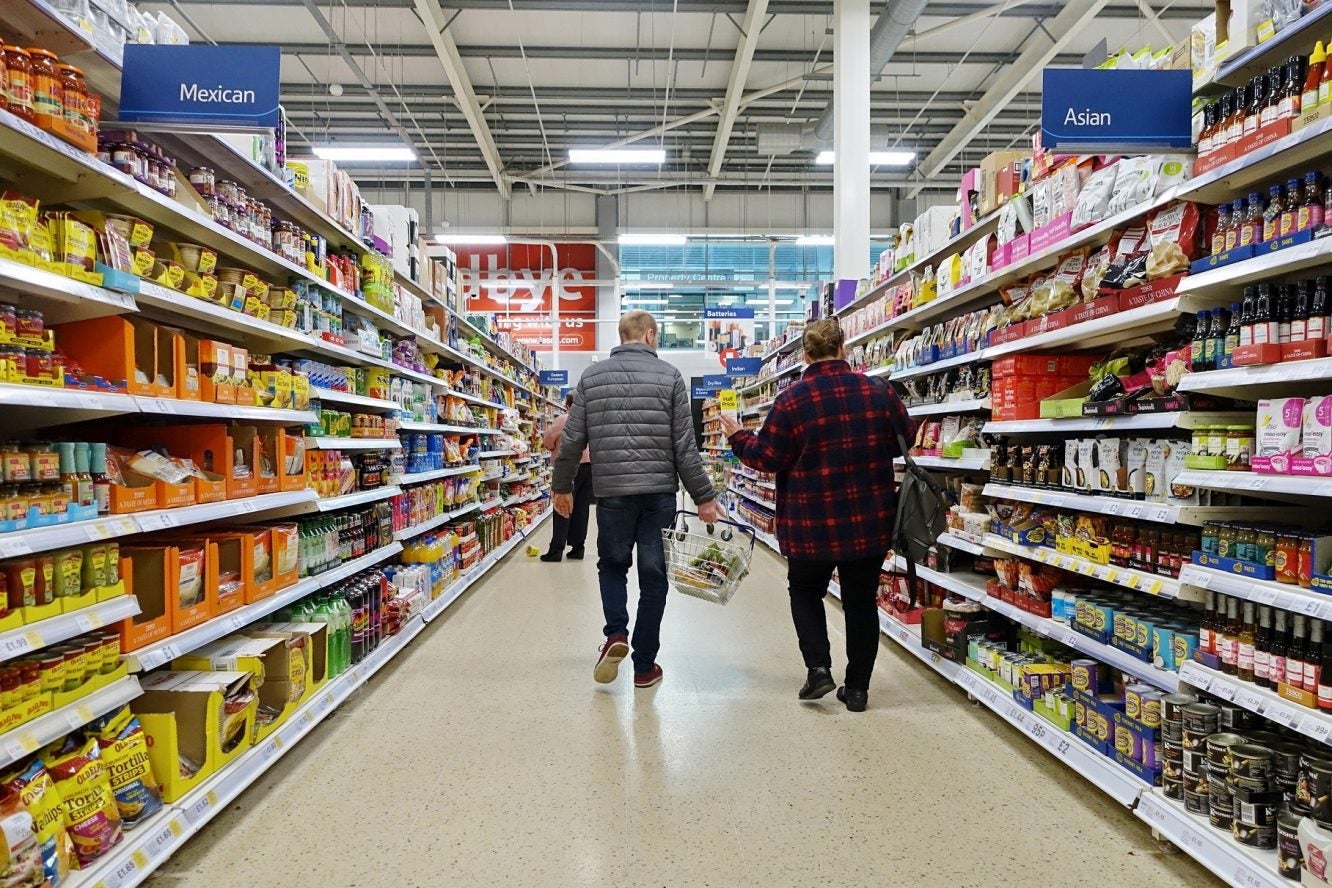
UK food and soft drinks inflation has hit a 45-year high, despite the government headline measure easing in November.
Prices for food and non-alcoholic beverages rose 16.5% in the 12 months through November, a sixteenth straight month of increases, to take the rate to its highest since 1977, the Office for National Statistics reported.
Bread and cereals led the gains, pushing up food and non-alcoholic drinks inflation from 16.4% in October. The rate has climbed almost two percentage points in a couple of months, from a revised 14.6% in September.
While an easing in the pace of overall price increases measured by the consumer price index (CPI) led commentators to speculate headline UK inflation may have peaked, the Food and Drink Federation (FDF) had a warning.
Karen Betts, the CEO of the UK industry body, said the withdrawal of government energy support next year could put renewed pressure on grocery prices given the extra costs faced by manufacturers.
“Energy still accounts for a significant portion of companies’ costs and we are seeking urgent clarity from government on what energy support will be available to the food and drink supply chain in the spring,” Betts said in a statement.
“The withdrawal of support will undoubtedly put further pressure on food and drink prices. There also remain low-cost and high-impact measures government could take to reduce unnecessary regulatory burdens on businesses in our sector, which would help curb inflation too.”
The headline CPI measure for UK inflation cooled to 10.7% in November from a year earlier, down from a 41-year high of 11.1% in October and approaching September’s 10.1% rate. Eyes will be on the Bank of England’s interest-rate decision tomorrow (15 December) following a string of increases in borrowing costs.
In terms of the monthly change in the UK prices of food and non-alcoholic drinks, inflation dipped to 0.4% from 0.7% in November last year. It was 2% in October.
“While the annualised rate of inflation slowed in November, consumers are unlikely to feel any relief in the cost-of-living crisis,” Nicholas Hyett, an investment analyst at Bristol-based investment firm the Wealth Club, said in a research note.
He added: “Today’s inflation numbers really raise more questions than answers. Is this just a blip in an ongoing inflationary trend or the beginning of the end of the inflationary bubble? We will have to wait for more data to be sure.”
Betts at the FDF said its members are still facing higher costs.
“Manufacturers continue to see persistent rises in their key costs, from ingredients to logistics, packaging and labour costs. Despite their best efforts to find efficiency savings, some price rises are having to be passed through to consumers.”
A chill, not a freeze: the impact of inflation on indulgent snacks
